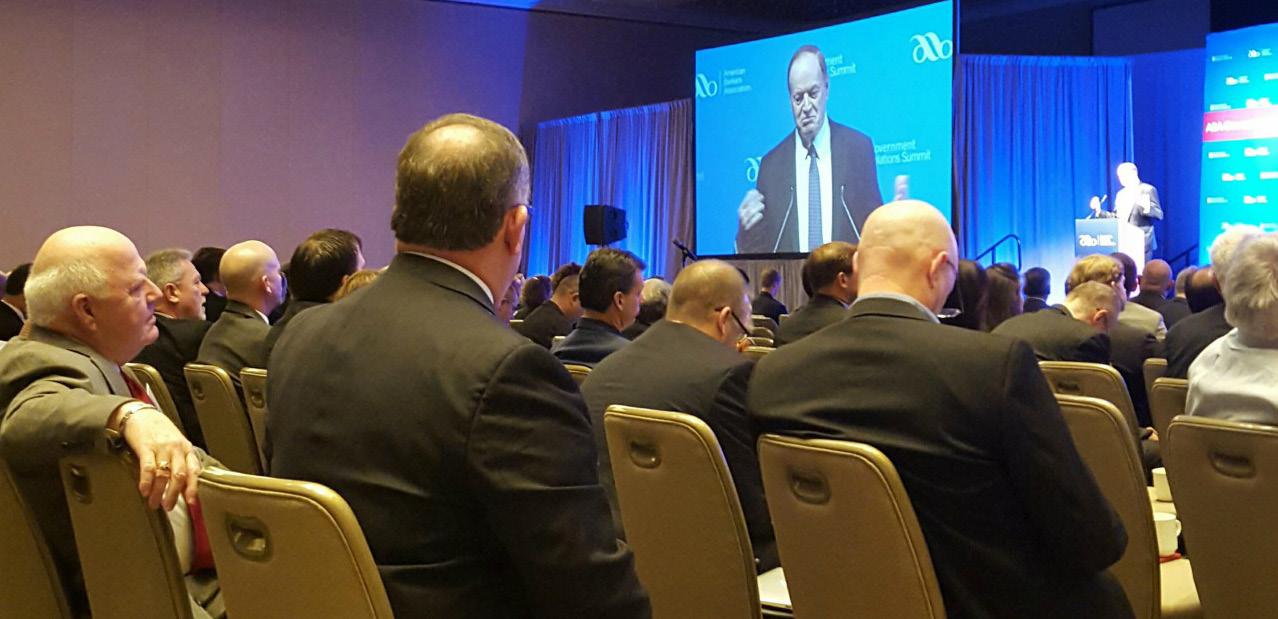POLITICAL PERSPECTIVE The Folly of Lazy Language For years, I’ve watched politicians maneuver their rhetoric through policy debates and stump speeches. Especially at the state level, many know the nuances of the debate pretty well, while some leave a lot to be desired.
I flash back to the days when a Jodie Mahony would confound the entire Arkansas House of Representatives over a subtlety in education policy that was far over the heads of many of his colleagues. Mahony was almost always correct and eventually the discussion would bore that out. I remember another instance where a group of upstart Republicans — David Sanders, Jonathan Dismang, and John Burris — held their own in the health care debate with then-Gov. Mike Beebe. It was a clarifying moment of real legislative sausage-making that brought about the private option health care plan. Once I saw a state legislator who was past his prime, Nap Murphy, handle an 82-page rewrite of the state’s probate code. When asked on the floor of the House by a first-term female lawmaker named Becky Lynn about some details of the bill, Murphy called her “little lady” and inferred that she didn’t need concern herself with such matters. Lynn corrected him and informed Murphy that she probably did since she was an attorney who specialized in probate and estate work. In today’s Presidential campaign, we see a variety of lazy rhetoric from nearly all of the remaining major party candidates. Bernie Sanders recent foray into describing how he’d “break up the big banks” — a cornerstone of his candidacy — left a lot to be desired when pressed for details. A New York Daily News editorial board meeting quizzed Sanders for more answers on exactly how he’d accomplish this goal. Sanders offered a few probable scenarios such as executive fiat, using Dodd-Frank, perhaps the Fed or U.S. Treasury had the power already. In short, Sanders really wasn’t sure. Some have
8
The Arkansas Banker | April 2016
defended Sanders arguing that he is right that there is some method established in current law and executive privilege to begin this process on the remote chance that he wins in November (a big if), but it underscores the point I’d like to emphasize that politicians rely often on a haze of language to rally their supporters when we deserve much more in the realm of specifics. Bernie’s bank debacle isn’t the only instance. Donald Trump has been as vague as any candidate on how he’d achieve the myriad items on his agenda to “make America great again.” Ted Cruz also speaks in broad terms about restoring freedom and prosperity to the country.
GUEST COLUMNIST ROBY BROCK
Hillary Clinton — and all of the other candidates — could take a cue from her husband who actually pulled together a book when he ran for President in 1992 titled “Putting People First.” Yes, it was a manifesto full of campaign spin. However, the 232-page book did have dozens of chapters dedicated to policy-specific action items to back up his promises. For instance, in education, Bill Clinton outlined 15 specific policy points that would impact everything from school standards to child safety to alternative learning and worker retraining. I’m not saying it was perfect, nor did I agree with all of the policies outlined in the book. But it was a comprehensive, wonky and definitive outline of the minutiae that is a part of governing that seems lost at the national level these days. A reporter or citizen could ask for greater detail on certain points and could find or be given an in-depth answer. In 2016, be wary of the campaign buzz phrases. They’re easy to remember but difficult to implement. When searching for your final candidate — at any level — ask more, seek more, expect more. Don’t settle for electing politicians on the promise of their stewardship; elect them for the specifics of what they plan to achieve.
Roby Brock is the Editor-in-Chief of Talk Business & Politics, an Arkansas-based multimedia news organization. Read news or sign up for daily newsletters at TalkBusiness.net.










